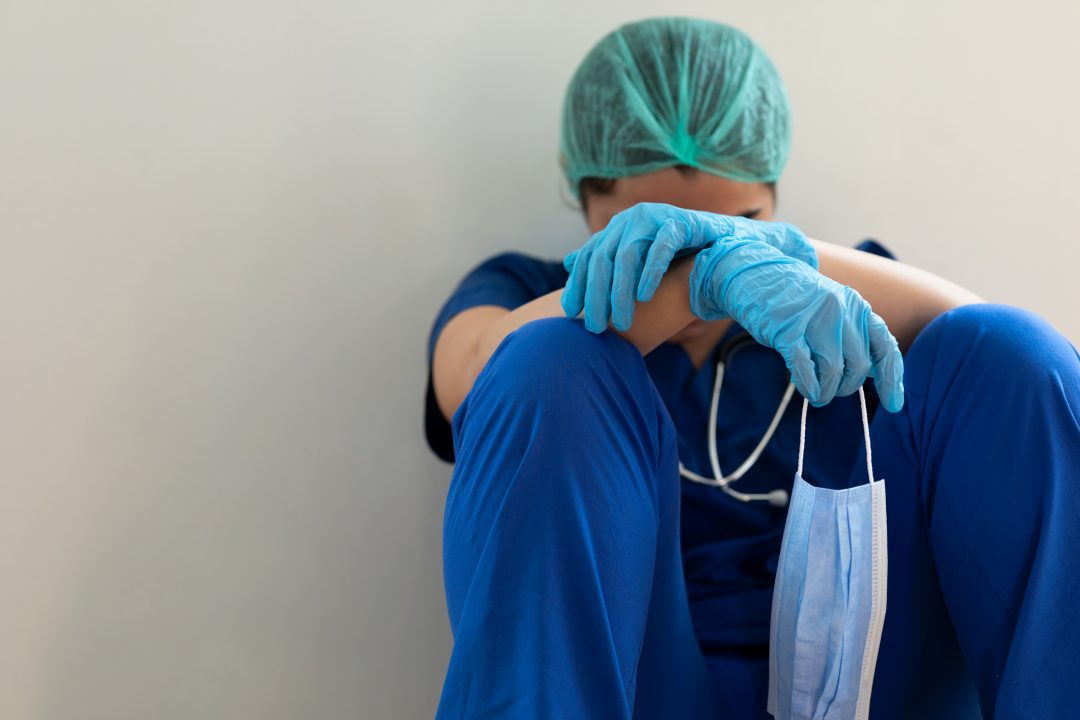Junior doctors in Scotland say they have been left with no choice but to ballot for strike action in a row over pay and conditions.
NHS medics warned they had reached a “tipping point” over a real-terms pay cut and “derisory” 4.5% wage uplift offer from the Scottish Government amid a host of crippling workplace pressures.
BMA Scotland said talks had “failed to reach an agreement to enter meaningful negotiations on full pay restoration for junior doctors” after a fall of almost 25% since 2008.
The union added the offer – tabled by the Holyrood earlier this year – had prompted an “exodus” of staff who felt “underappreciated, burned out and demoralised” since the country emerged from the coronavirus pandemic.
Dr Chris Smith, chair of the union’s junior doctor committee, said colleagues were “carrying the moral injury of constantly having to apologise for the buckling system” to the patients.
It comes after nurses in every health board across the country voted to strike for the first time last month.
Health secretary Humza Yousaf previously championed the offer as the “largest since devolution,” adding it “demonstrated the Scottish Government valued its medical and dental staff”.
But Dr Smith said some colleagues were struggling to afford rent, bills and meals amid the cost of living crisis as he urged Holyrood to table an offer that matched skyrocketing rates of inflation.
He said: “No one who enters medical school is driven purely by financial reward; we want what’s best for the public and our patients.
“But right now, we can see that, without halting the burnout, demoralisation and resulting exodus of talented and compassionate staff, we will not be able to provide that care for much longer.
“Years and years of being under-valued and underappreciated has led us to this point – I want to be absolutely clear that we did not reach this decision rashly. We do this reluctantly.”
The BMA said junior doctors in Scotland had seen their real terms pay fall by 23.5% from 2008/09 to 2021/22 for foundation year (FY) doctors, and by 23.9% for specialty registrars (StRs).
The union previously warned of a “talent drain” in Scotland’s NHS, with some lured to the likes of Australia, Canada and New Zealand with promises of increased pay and better work life balance.
A ScotPulse Poll, commissioned by STV News, revealed 44% of 1,285 Scots had low to no confidence in how ministers are handling the health service.
A further 55% of respondents said they would consider private treatment if they could afford it, with 66% saying the standard of public healthcare is getting worse.
The number of beds occupied by people who were ready to be discharged from hospital reached a record average high of 1,898 in October, while just 61.9% of people attending A&E departments were seen and subsequently admitted or discharged within four hours in the week up to November 27 – another record low, according to Public Health Scotland (PHS).
The Scottish Government’s target aims to have 95% of patients seen within four hours.
Dr Smith admitted a “restorative” pay offer “would not be a quick fix” to all the issues in Scotland’s NHS, but said it “would demonstrate they are valued” beyond “warm words and platitudes”.
He added: “Some first-year junior doctors in Scotland – FY1s – making life or death decisions and staffing wards across the country, earn a basic salary that equates to approximately £14 an hour. After years at university, some incurring huge debts, that is simply not good enough.
“That is why, in many ways, pay restoration is the quick fix for the government – it will take years to fix staffing issues, because it takes years to train doctors; you cannot fix wellbeing and workplace culture overnight either – but by committing to paying your workers more, what they deserve for doing a job that is so invaluable, you are showing them that you value them. They are appreciated. They are recognised.
“Since 2008, the take home pay of doctors has been cut by almost a quarter – 23.5% to be exact. As demand for NHS services soared, the amount that successive governments were willing to compensate the staff providing them plummeted. Enough is enough.”
Health Secretary Humza Yousaf said he was “disappointed” over the union’s decision, adding the requested rise was “unaffordable in the current climate”.
He added: “I’ve been very open about the real fiscal challenges we face. We’ve explored all options this year and there’s no additional money for pay without cutting NHS and other public services.
“I’ve offered to meet with the BMA again and wrote to them yesterday. Additionally, I will be writing to the Doctors and Dentist Review Bodies to see if they wish to make a separate and specific recommendation for junior doctor pay in 2023.”
Follow STV News on WhatsApp
Scan the QR code on your mobile device for all the latest news from around the country


 iStock
iStock

























